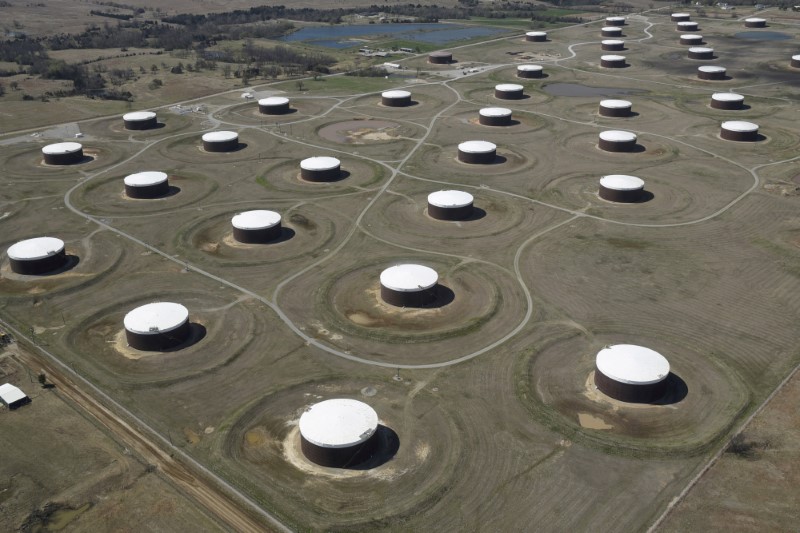By Ron Bousso
LONDON (Reuters) - The world's top oil and gas companies are under growing pressure to revive share and dividend rewards to investors as profits and oil prices get back on track after a three-year crunch.
BP (L:BP) fired the opening shot last week by surprising the market with the resumption of share buybacks after diluting share value for three years through scrip dividends, where investors can opt to receive dividends in shares or cash.
The pressure is now on Royal Dutch Shell (L:RDSa) to make good on commitments made in 2015, following the decision to acquire BG Group for $54 billion (£41.1 billion) , to remove scrip in 2017 and launch a $25 billion share buyback programme from 2017 to 2020.
"There is a competition to see who can first remove the scrip, resume the buyback and then maybe, how much can you buy back and compensate for years of share dilution," said Jags Walia, asset manager at Dutch pension fund APG, which holds shares in Shell and BP.
"I'd like to see them (Shell) announce the turning off of scrip, start talking about the $25 billion buyback - it has been a while since they spoke about that."
Shell did not provide an update on its plans with its third-quarter results, which showed the company generated sufficient cash to cover dividends for the fifth straight quarter, outdoing its larger rival Exxon Mobil (N:XOM).
Chief Financial Officer Jessica Uhl said in a call last week that Shell's priorities remain to reduce debt, pay dividends and turn off scrip before turning to share repurchases.
Changing the dividend policy will have a significant impact on Shell's balance sheet even with cashflow soaring to $28 billion in the first nine months. Dividend payouts for the Anglo-Dutch company in the 12 months to September amounted to $15 billion, with scrip accounting for around a quarter.
Shell is not the only one at a crossroads.
Norway's Statoil (OL:STL) confirmed in October it would revert to full cash dividends from the fourth quarter, after ending a two-year scrip dividend programme.
France's Total (PA:TOTF) said it will scrap the discount offered for scrip shares in 2018.
ADJUSTING TO LOWER PRICES
Shares of oil companies went through a roller coaster in recent years, tracking the collapse of oil prices in 2014 from over $100 a barrel to as low as $28 a barrel.
Deep cost savings, job cuts, asset sales and the recovery in oil prices to above $64 a barrel this month have all helped boost profits and shares back to levels similar to 2014.
With the Shell's $30 billion asset disposal programme on track to be completed almost a year ahead of schedule and debt trending towards around 20 percent, removing scrip will be in focus at its investor day at the end of the month.
"The pressure is on Shell to draw a line in the sand and commit to end scrip dividend," said Brendan Warn, analyst at BMO Capital Markets.
Removing scrip, effectively used to preserve cash in hard times, will send the clearest message yet that Shell, as well as other companies, have adapted to a world of lower prices, Warn said.
Dividends are a major burden on oil majors' balance sheets, amounting to more than $47 billion in 2017.
But none, bar Italy's Eni (MI:ENI) cut levels throughout the three-year downturn. Shell has repeatedly boasted that it hasn't reduced dividends since the Second World War.
Scrip and suspending buybacks were still vital for many companies to survive at crude prices of around $50 a barrel in 2017.
HSBC estimates that BP's operations will fully cover $8 billion of dividend payments as well as $16 billion in spending at $59 a barrel this year, going down to $53 a barrel in 2018 when excluding payments for the 2010 Deepwater Horizon spill.
For Shell, scrip has helped reduce the breakeven price in 2017 from $55 a barrel to $50 a barrel, according to HSBC.
Exxon slowed down last year its massive share repurchase programme as earnings dropped. It nevertheless kept with its 35-year-old tradition of raising dividends.

Chevron (NYSE:CVX) held off on a dividend raise for the fourth quarter due to market uncertainty, but in July it said such a move would be its first use of cash.